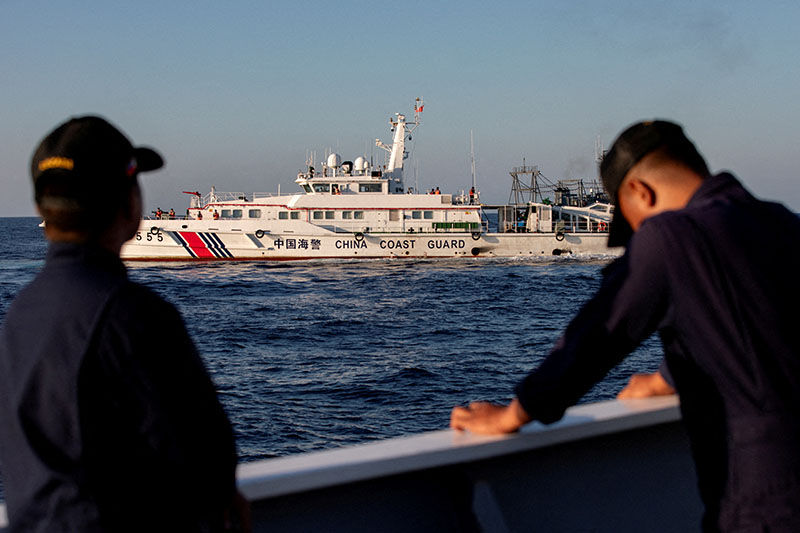MANILA (Thomson Reuters Foundation) — Territorial wrangling over who owns the South China Sea has strangled local marine life, say scientists, urging China and the Philippines to set aside political differences and work to save the fish, coral and plants that live border-free. A tug of war over the sea – spanning more than 3.5 million square km – has divided the two nations for over two decades, a standoff built on deep history and modern economics.
Based on its reading of old maps, China claims almost the entire South China Sea as its own, including the Scarborough Shoal, famed for its rich fish stocks and exquisite lagoon. The shoal sits 200 km off the Philippines and jostling over its ownership is just one flank in a long series of air and sea encounters between the two countries. For their part, marine biologists from the Philippines point to an unintended environmental casualty of all the wrangling, saying geopolitics and money now jeopardize one of the world’s most precious marine ecosystems.
“Amid this geopolitical tension that we have in the region are the corals, the fishes, the invertebrates, and the organisms that are not privy to the politics,” Deo Onda, a professor at the University of the Philippines Marine Science institute (UP MSI), said during a forum in July. “As we always say, fishes do not have passports.” Filipino marine scientists say that the installation of new islands by China has destroyed more than 4,000 acres of coral reef, with a f.


















